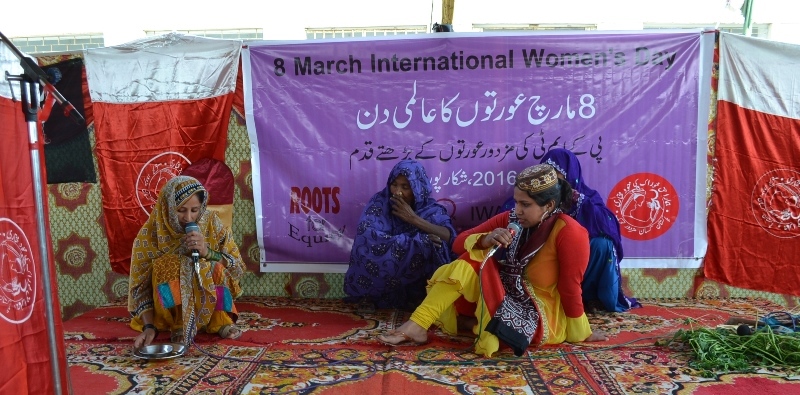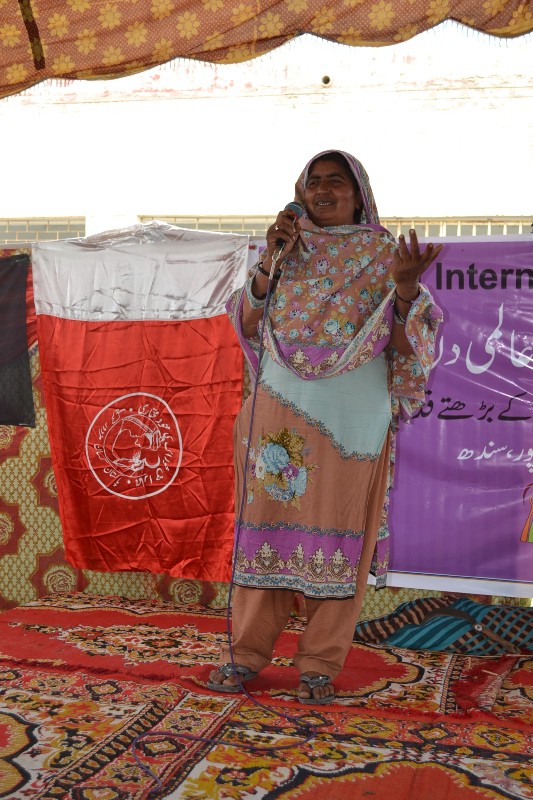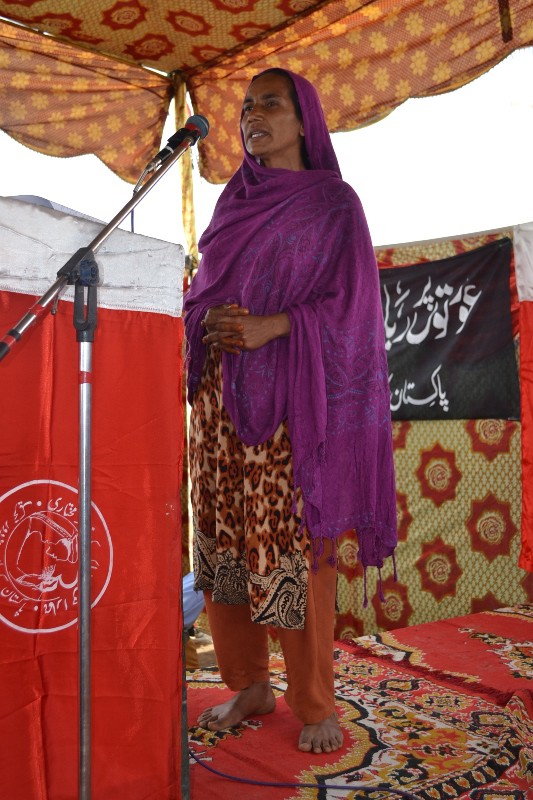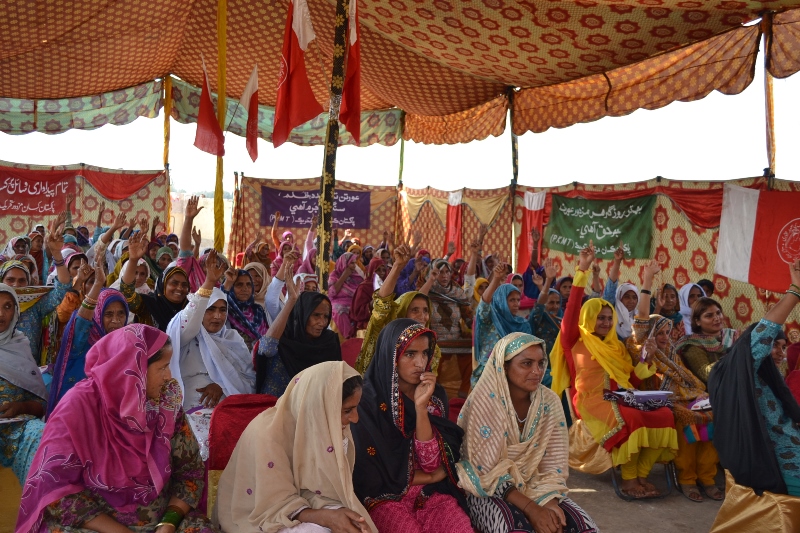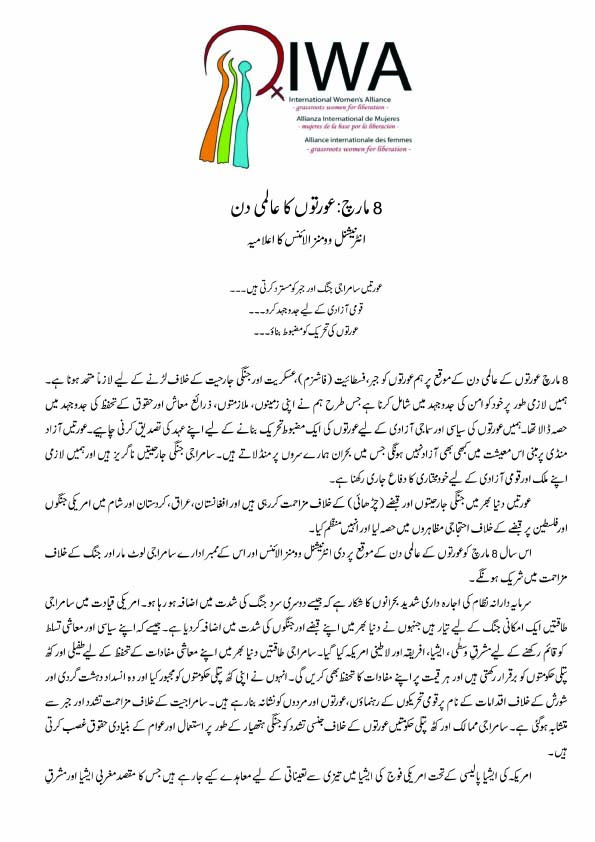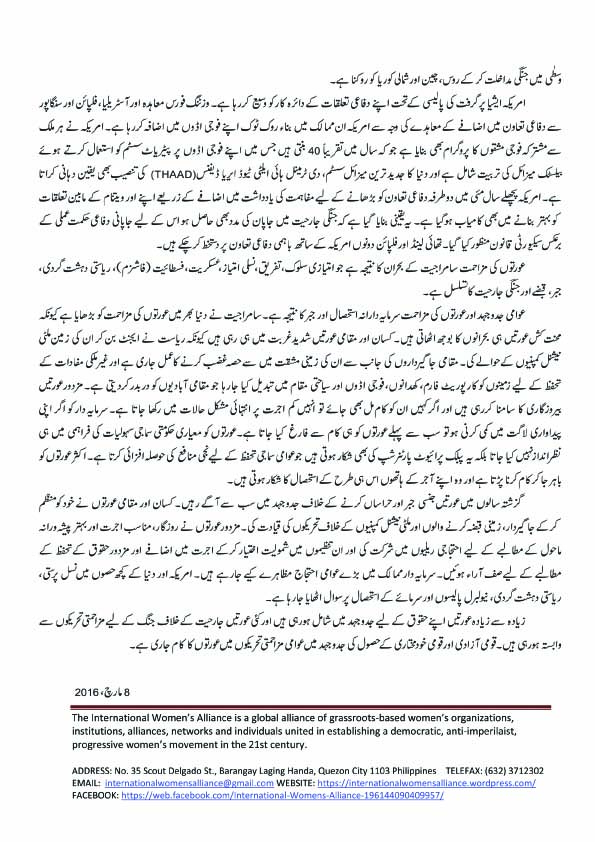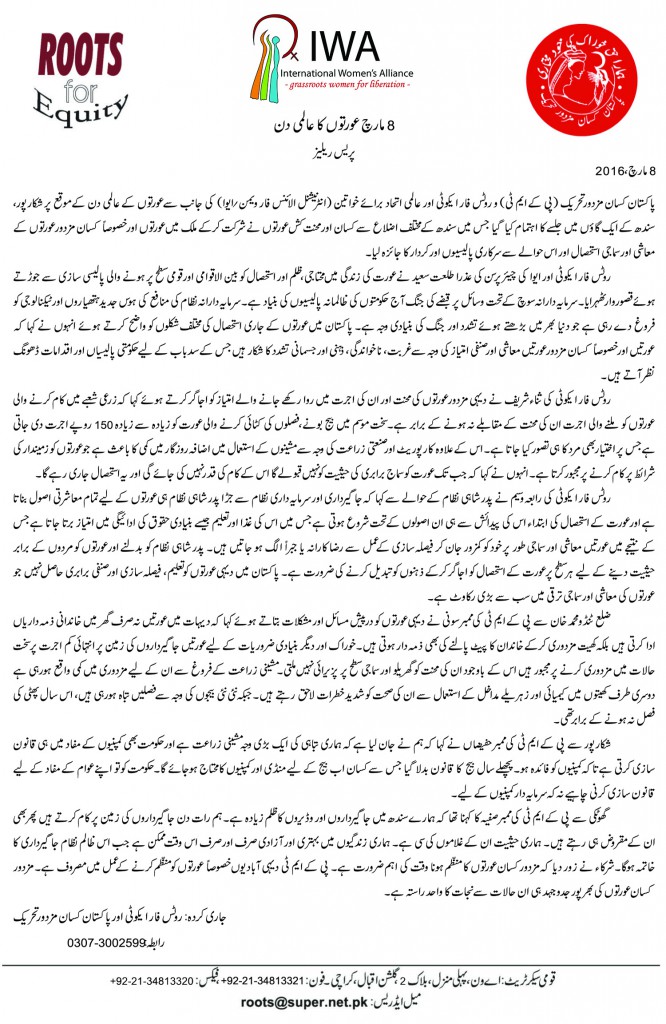Women Say No to Imperialist War and Aggression, Strengthen the Women’s Movement and Fight for National Liberation!
This International Women’s Day, March 8, we women must unite to fight repression, fascism, militarization and wars of aggression. We must involve ourselves in the struggle for just peace as we took part in the struggle to defend our lands, our jobs, our livelihood and our rights. We should affirm our commitment to build a strong women’s movement towards women’s emancipation. Women will never be free in a free market economy where crisis plagues us all. Imperialist wars of aggression are inevitable. We must continue to defend our country, our sovereignty toward national liberation.
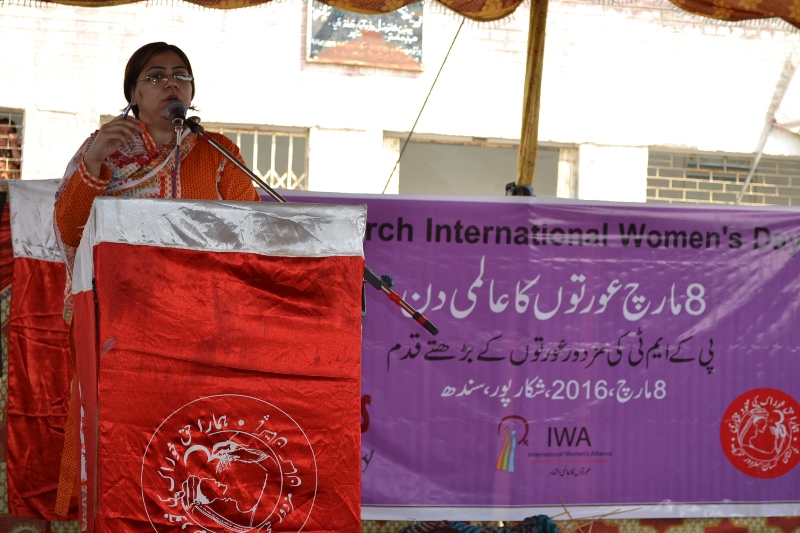 Women the world over are resisting wars of aggression and occupation. Women have joined and organized solidarity and protest actions against US wars in Afghanistan, in Iraq, in Kurdistan, and in Syria and the occupation of Palestine.
Women the world over are resisting wars of aggression and occupation. Women have joined and organized solidarity and protest actions against US wars in Afghanistan, in Iraq, in Kurdistan, and in Syria and the occupation of Palestine.
This March 8, the International Women’s Alliance (IWA) and its member organizations will join the call to resist Imperialist plunder and war.
Monopoly capitalism is in deep crises. As the second cold war heats up, imperialist super powers led by the US prepare for the eventuality of a war. They have intensified their wars and occupation across the globe — in the Middle East, Asia, Africa and Latin America—to maintain political and economic hegemony. They have maintained puppet and client regimes to protect their economic interests all over the world. They will protect their interests at all cost. They have compelled puppet regimes to pass anti-terrorism and counter-insurgency measures targeting leaders, women and men, of national movements.Resistance against imperialism have been met with violence and repression. Imperialist countries and puppet regimes connive to use sexual violence against women as a tool of war and curtail the fundamental rights of the people.
Treaties and agreements have been laid down for rapid forward deployment of US troops under the US Pivot to Asia as a springboard for US interventionist war in West Asia and the Middle East and to block off Russia, China and North Korea.
With the US Pivot to Asia, the US has laid down the framework for expanded defense relationship. Through the Visiting Forces Agreement (VFA) and the Enhanced Defense Cooperation Agreement in Australia, Philippines and Singapore, the US has unrestricted basing access anywhere in these countries. The US has also developed joint military exercise programs that engage the services of each nation to an average of 40 joint exercises per year. It conducts ballistic missile training using Patriot System at its bases and has confirmed the deployment of the most advanced missile defense systems in the world, the Terminal High-Altitude Area Defense or THAAD. The US has also succeeded in “normalizing US-Vietnam relations with the Joint Vision Statement signed in May last year, extending the Memorandum of Understanding for Advancing Bilateral Defense Cooperation. It has ensured the support of Japan for the wars of aggression with the signing of the Security Laws that circumvented the protectionist character of the Japanese constitution. Both Thailand and the Philippines signed a Mutual Defense Cooperation with the US.
Women’s resistance is a product of the crisis of imperialism that perpetuates discrimination and oppression, racism and chauvinism, militarization, fascism and state terrorism, wars of aggression and occupation.
The peoples’ struggles, the women’s resistance are results of capitalist exploitation and oppression. Imperialism has ignited the resistance of the women of the world. Toiling women bear the brunt of the crises. Peasant and indigenous women have remained the world’s poorest as states broker their lands to transnational corporations and despotic local landlords continue to steal their share in tilling the land and connive with foreign interests to turn lands into corporate farm, mining, eco-tourism and military camps that displaced peoples and communities. Women workers face unemployment. If and when hired, they keep on working even with lower wages under difficult working conditions. They are the first to be fired as capitalists cut their production cost. They bear the brunt, not only of government neglect in providing quality public social services, but become victims of the Public Private Partnership policy that encourages private profit for public social security. Most women opt to work abroad and suffer the same exploitation in the hands of abusive employer.
The past years saw women at the forefront of the struggle against sexual abuse and oppression. Peasant and indigenous women organize themselves and lead campaigns against landlord, land grabbers and against transnational corporations. Women workers joined marches to demand for jobs, decent wages, better working conditions and the joined unions and stood at picketlines to demand worker’s rights protection and wage increase. In capitalist countries, massive protest actions are being launched. The people of color, joined by women of color, in the United States and in many parts of the world have challenged racism, state terrorism and has challenged neoliberal policies and capital exploitation.
More and more women are joining the struggle to fight for their rights and many more are joining resistance movements against the wars of aggression. Women continue to work within people’s resistance movements in the struggle for national sovereignty and national liberation.
URDU Translation

